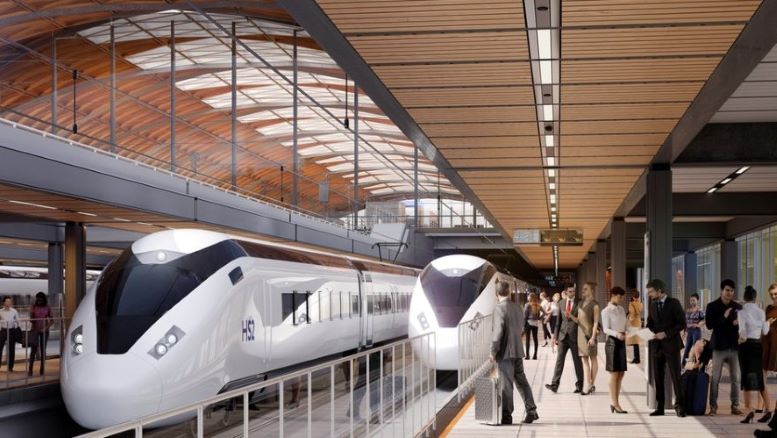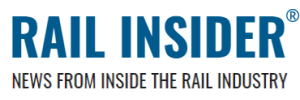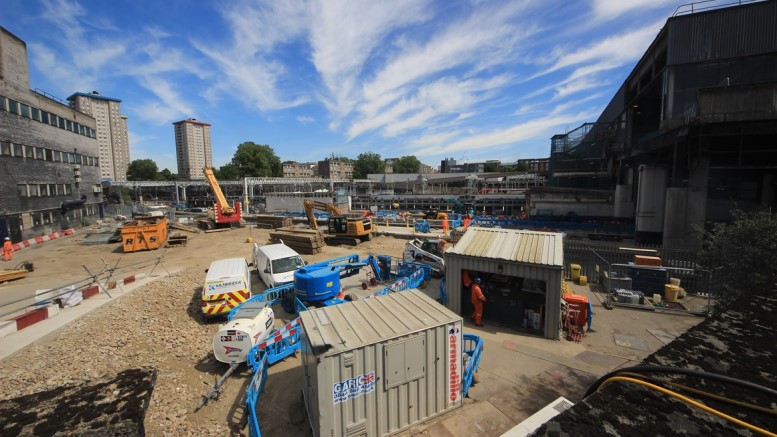
The National Audit Office (NAO) issued its report High Speed Two: A Progress Update on Friday 24 January 2020, stating that HS2 is over budget and behind schedule because the Department for Transport (DfT), HS2 Ltd and wider government have underestimated its complexity and risk.
It claims that significant challenges to completing the programme and delivering value for taxpayers and passengers remain, commenting that the DfT’s latest estimate of the cost of HS2 is between £65 billion and £88 billion (2015 prices), between 17 and 58 per cent over available funding.
The report then qualifies those figures, stating that the programme is still at an early stage and costs are uncertain and could change. It goes on to give its opinion that the target opening date for Phase One (London to West Midlands) was ambitious, was set by comparison with other infrastructure programmes, and that the DfT did not sufficiently consider that HS2 is a much larger and more challenging programme to deliver.
The DfT, which is responsible for funding and overseeing delivery of the railway, set the available funding for Phase One in 2015, based on a basic design produced in 2013. Since then, forecast costs have increased on all parts of Phase One except the purchase of new trains. DfT and HS2 Ltd now estimate Phase One to cost between £31 billion and £40 billion, £3.9 billion to £12.9 billion more than its available funding.
The NAO suggests that HS2 Ltd did not account for the level of uncertainty and risk in the programme when estimating the costs of Phase One in April 2017. It used a method for calculating contingency that was not appropriate for a programme at such an early stage of development. The £7 billion of contingency was not enough to address the significant cost increases that emerged.
Phase Two of the programme is at a much earlier stage than Phase One, the report continues, but is already forecast to cost more than its available funding and take longer than expected. HS2 Ltd’s current forecast for when passenger services would run on Phase 2a (West Midlands to Crewe) is between 2030 and 2031, and for Phase 2b (Crewe to Manchester and West Midlands to Leeds) is between 2036 and 2040, three to seven years later than planned. DfT estimates that costs for Phase 2a could be £6.5 billion (87 per cent higher than the available funding) and Phase 2b £41 billion (63 per cent higher than the available funding).

At the end of its report, the NAO makes a series of recommendations to government, DfT and HS2 Ltd covering the robustness of cost and schedule estimates, the capabilities needed to manage a programme of this scale and the oversight arrangements required for the remaining phases.
Gareth Davies, the head of the NAO, said at the launch of the report: “There are important lessons to be learned from HS2, not only for the Department for Transport and HS2 Ltd, but for other major infrastructure programmes.
“To ensure public trust, the Department and HS2 Ltd must be transparent and provide realistic assessments of costs and completion dates as the programme develops, recognising the many risks to the successful delivery of the railway that remain.”
Reactions
HS2 Ltd was, unsurprising, one of the first to respond to the NAO report. A spokesperson said: “The vast majority of the NAO’s findings were revealed in HS2 Ltd’s 2019 stocktake – a year’s worth of deep dive investigation into the underlying costs and timescale of the project. As such, the revised costings and schedule are already widely known.
“After being appointed HS2 Ltd CEO in 2017, Mark Thurston identified the serious challenges of complexity and risk in the project, and he made several significant changes and improvements to the organisation, its governance and processes. As the NAO recognises, this work – along with a greater understanding of the ground conditions and build requirements – means Ministers have robust cost estimates for Phase One of the HS2 project. If the Government decides to proceed, HS2 Ltd has a highly skilled team in place ready to build Britain’s new state-of-the-art, low-carbon railway.”

Robert Nisbet, director of nations and regions at the Rail Delivery Group, which represents train operators and Network Rail, also responded: “It’s time to inject some realism into the debate about HS2. There are no shovel ready alternatives. To cancel it would be to worsen punctuality and overcrowding on the railway for years to come, throttling future economic growth and damaging the environment by encouraging car travel.
“By acting like a road by-pass, HS2 will shift long-distance trains onto a separate new line and enable the more frequent, punctual commuter services on existing tracks that people are already crying out for.”
The High Speed Rail Group had its say: “The NAO is right to note that the HS2 project is now significantly progressed in its implementation. Considerable early works have already taken place for Phase 1. Similarly, December’s Queen’s Speech made provision of parliamentary powers for Phase 2a. HS2 is the only ‘shovel ready’ project of its scale in Britain today.
“If the Government want to fulfil their promise of an infrastructure revolution, HS2 must be completed in full, without further dither and delay. The alternatives spoken of are many years behind HS2 in terms of readiness to begin work and some, like Northern Powerhouse Rail, require HS2 to be delivered to realise their full benefits.
“HS2 is essential to the Government’s goal of ‘levelling up’ the UK economy and fixing the North-South divide which has beset Britain for generations. It is time to get HS2 done.”

The trade unions came out in support of the project. TSSA general secretary Manuel Cortes said: “At the end of the day, this is a positive and practical report which provides yet more reasons to push on with this vital infrastructure project.
“Our union completely agrees with the National Audit Office’s call for transparency from the Department for Transport and HS2 Ltd to ensure the success of this project going forwards.
“We must end the paralysis and seize the ambition of HS2 which will cut our carbon emissions, massively upgrade our rail infrastructure, and bring investment to the Midlands and North of England. And it must be built through to Scotland for its full ambition to be realised.
“I call on the government to stop dithering and give our industry the certainty it needs by making it crystal clear that HS2 will go ahead at least as far as Leeds and Manchester. Thousands upon thousands of jobs and the economic regeneration of the North are dependent on this.”

West Midlands Combined Authority.
The first phase of HS2 going to the West Midlands. Steve Hollis, chair of the West Midlands Combined Authority’s HS2 Growth Strategy, said: “We welcome today’s report from the National Audit Office (NAO) on HS2, as we gear up for the green light from government to get on and deliver the most important investment in the UK’s infrastructure for a century.
“The report provides forensic analysis on the HS2 programme and makes clear recommendations to the Department for Transport and HS2 Ltd, on how they can ensure public trust, as the programme develops. It highlights how the complexity and risk of the largest infrastructure project in Europe, were underestimated by the Department for Transport (DfT), HS2 Ltd and wider government.
“As we move to the next phase of construction for the new high speed network, it is essential that those in charge take heed of the advice in this report, and that of the forthcoming Oakervee Review, which leaks suggest provides a strong recommendation to the government to proceed with HS2 and advice how to ensure the project delivers exactly what the country needs.
“Truly transformative infrastructure takes decades to deliver but the benefits last centuries. HS2 is much more than a railway, it is an agent of change. HS2 provides the connectivity and the capacity that the county needs to revolutionise the rail network; it creates hundreds of thousands of new jobs providing careers and security for workers today, and future generations; and it underpins the confidence that will lead to more than a trillion pounds of investment the UK.”
Added pressure
Two of the regions to be served by HS2 chose the release of the NAO report as an appropriate time to urge the Government to confirm its intentions to build HS2 in its entirety.

Sir John Peace, chair of Midlands Connect and Midlands Engine said: “The benefits of HS2 will be felt by millions of people across the UK, including passengers that never set foot on a high speed train. Regional and local rail services are in desperate need of improvement and it’s time we face facts, without the space and flexibility created by HS2, the transformational change needed is not possible.
“It is the capacity released by the line – not just its speed – that will give the whole network a desperately needed overhaul. We haven’t built a new inter-city railway north of London in a century – piecemeal interventions will do no more than paper over the cracks of an overloaded, tired network. Left unchanged, these deficiencies will stifle growth and prosperity for decades to come. Our message to Government is clear; commit to HS2, commit to the regions you serve and give us a transport network fit for the future.”

Northern Powerhouse Partnership.
Henri Murison, director of the Northern Powerhouse Partnership, added: “HS2 is not just about speed or getting to London more quickly, it is about bringing the Northern Powerhouse closer to the great cities of the Midlands. It will create more capacity for local services, the same way Northern Powerhouse Rail does for freight and local passengers across the Pennines.
“Connecting Britain will be a major factor in rebalancing the economy – new lines both to the north west from Birmingham and up the eastern side of the UK, will expand labour markets, grow jobs, helping the North and Midlands to become as prosperous and successful as London. New direct links from a city like Coventry to Sheffield, York and Newcastle, by upgrades to the existing network, demonstrate that even those who don’t use an HS2 service will still see the benefits.”





Be the first to comment